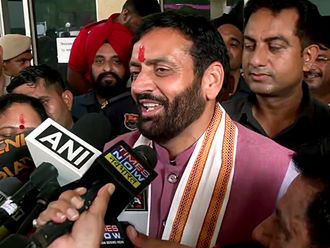
Despite the good news from Syria that the president expects its tough Emergency Law to be dropped after almost 50 years, the political outlook does not look very different from today.
President Bashar Al Assad accompanied his announcement on Saturday to drop the emergency law with the chilling comment that once the law had gone, there would no longer be ‘an excuse' for organising protests in Syria, adding that after dropping the law the government ‘will not tolerate any attempt at sabotage.'
While Al Assad expressed his sorrow at the deaths of the almost 200 people killed by the security forces during the protests, he offered no indications that he plans to curb their actions, nor dismantle any of Syria's huge security apparatus.
It looks as though Al Assad's government is about to offer the essential minimum to show that it can make reforms, and then revert to business as usual, accompanied by tough repression of any future protests.
He is trying to have it both ways by arguing in favour of reform, while keeping the old security system in place.
The fact is that not all protests will be sabotage, and not all marchers are out to wreck the state. Some have been looking for more transparency from their government. Some have been asking for economic liberalisation and more opportunities for employment. Al Assad appears to recognise that these are legitimate issues.
He has been very clear when he said it is important to eliminate the gap in trust between the organisations of the state and its citizens. He agrees that corruption is a threat to morality and the country's development, and he says he wants to tackle unemployment.
The only question is how much the Syrian people will believe him. Simply scrapping the 50 year-old Emergency Law does not add up to the comprehensive political reform that Syria needs.







